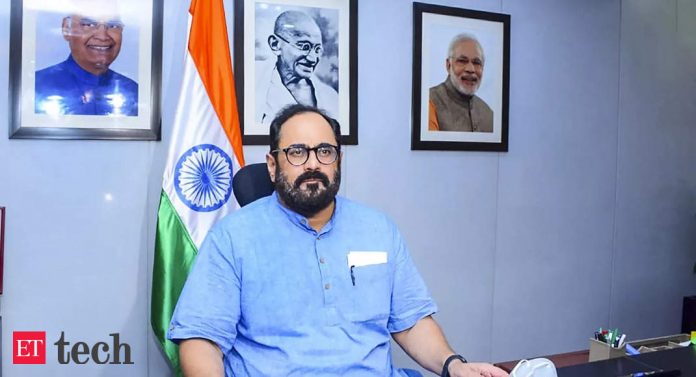The Supreme Court last month appointed a three-member panel of cyber experts to probe the alleged use of Israeli spyware Pegasus for surveillance of certain people in India.
Reacting to the recent revelations around how Facebook’s systems have failed to control spread of fake news and misinformation on its platforms and have actually contributed to fueling of hate speech, Chandrasekhar said that the world was caught off guard when it comes to understanding how to regulate the big platforms on the internet. “And that’s true for India; Australia; Japan; US and Western Europe.” He said that intermediaries have been allowed to be intermediaries with no accountability for what goes on those platforms, whether it is our section 79 or Section 230 in the US.
“But if the Internet has to be safe and trusted by the consumers and intermediaries are accountable to the users, then some form of rules have to come in place.” He added that platforms both big and small have to play by the rules. “You may think that the cyberspace has no geography and boundary. But in India, for example, the fundamental rights of our citizens cannot be dragged down by anybody… there will be pushback. They will push it back and the spin will be that this is about government control. But I can assure you and your audience that this government is committed to keeping the Internet open. It is only interested in ensuring the Internet remains safe, trusted and accountable to its users.”
Earlier this month, the Ministry of Electronics and Information Technology (MeitY) released an explainer on the new Information Technology Rules that came into effect on May 26. The document reiterated that turning over details of the originator of messages will not break or weaken encryption of significant social media intermediaries such as WhatsApp, Telegram and Signal.
The FAQs, which provide answers to over two dozen questions, have also offered clarifications on the information that the appropriate government authority needs to provide before seeking content takedown or information about a post.
It answers queries on what and how much user information will have to be retained by intermediaries; publishing of details about grievance officers; adherence to various prescribed timeframes by the intermediary, among others.
It also specifies the grounds of non-compliance with the rules by the intermediaries.
























